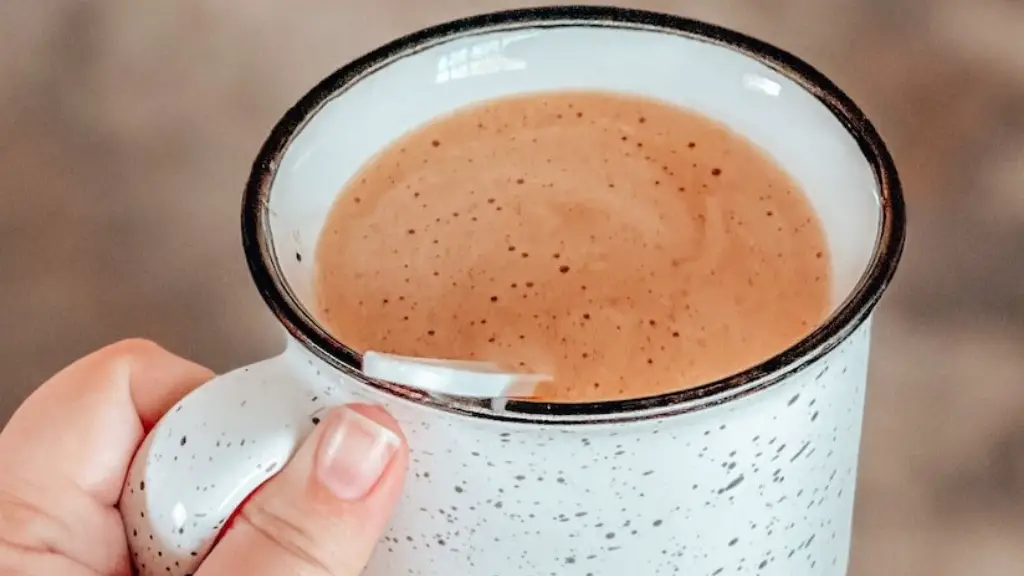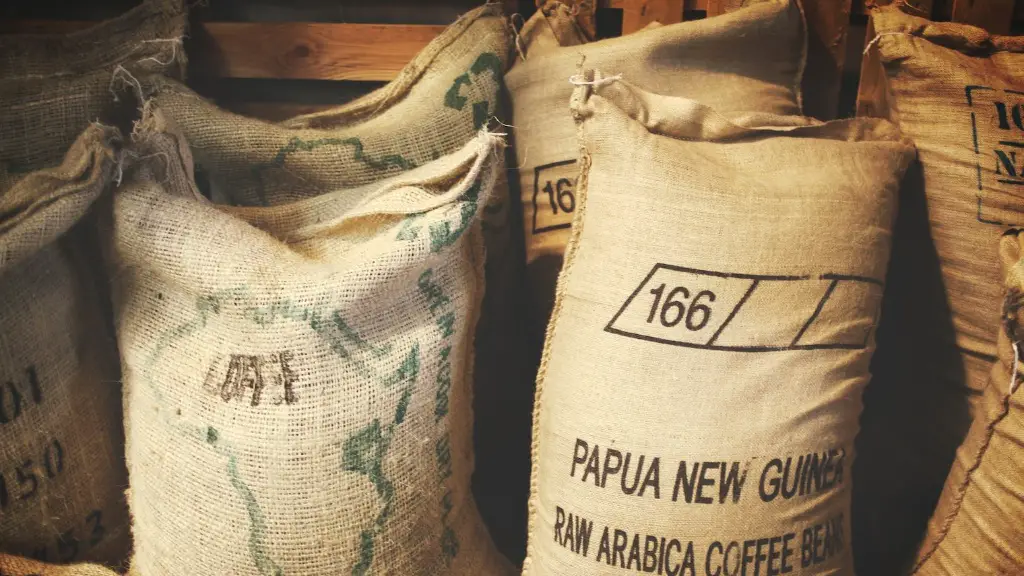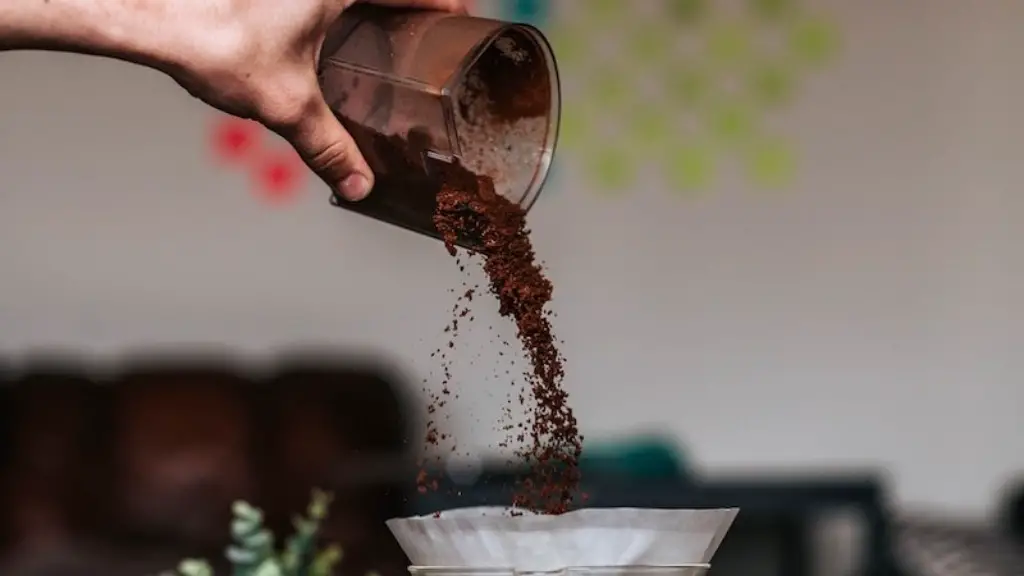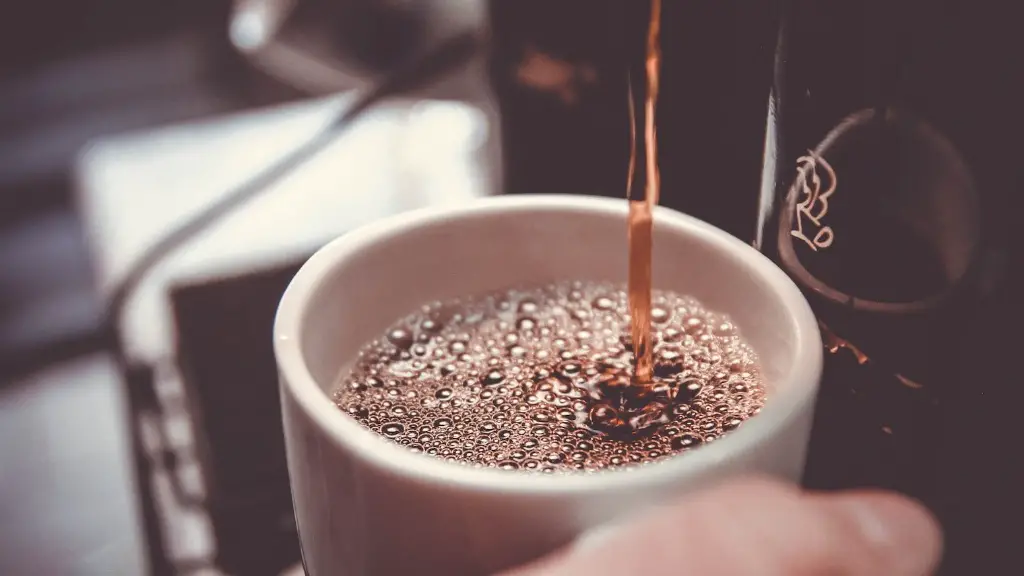Caffeine is everywhere in our modern lives, and it’s no wonder that people are curious if the same rules relating to it apply to their pets. But can dogs drink decaffeinated coffee?
The short answer is no, decaffeinated coffee can still present a potential poison risk to your dog. It contains by-products of the decaffeination process that can be dangerous if consumed in large amounts. However, it is not likely to cause severe symptoms in the majority of pets.
Caffeine is an alkaloid, a naturally occurring substance that can be found in coffee beans, tea leaves, and certain plants like cocoa and cola. It has a stimulant effect on humans, but it can have very serious consequences for dogs when ingested in large amounts. Caffeine causes a dogs heart rate to increase, as well as their respiration and blood pressure. This can lead to dangerous health conditions such as an irregular heartbeat, seizures, and potentially even death. Decaf is not entirely devoid of caffeine either – it normally contains traces of the substance, and therefore is not safe for pets to consume.
The toxicity of decaffeinated coffee to dogs depends on several factors. The size and weight of your pet will play a role, as well as the amount of decaf ingested. A smaller dog may develop symptoms with as little as 2-3 ounces, while a larger dog will be able to tolerate more. All dogs should probably be kept away from decaffeinated coffee, as even a small amount can cause serious issues in a smaller pet.
If your furry friend has gotten their paws on some decaffeinated coffee, it’s important to take them to a veterinarian as soon as possible. After taking a physical examination, your vet may opt to give your pet activated charcoal, which can help counteract the toxic effects of decaf. In some cases, your vet may also opt for intravenous fluids to help flush out the caffeine and other chemicals from your pet’s system.
Although the risk of caffeine toxicity from decaf is lower than from regular coffee, it’s still important to realize that it isn’t something that should be taken lightly. Part of having a pet is making sure that they are safe and healthy, which includes monitoring what they eat and drink. Your beloved furry friend should never be allowed to get their paws on any caffeinated beverages, decaf or not.
Carob as an Alternative to Coffee
Given the risks associated with decaffeinated coffee, many pet owners opt to provide their dogs with an alternative. Carob is a chocolate substitute derived from a Mediterranean tree that can be mixed with milk and served as a sweet or savory beverage. Not only does carob provide a caffeine-free option, but it also holds a variety of other benefits. Carob is often high in calcium, iron, and B vitamins, and is a good source of dietary fiber.
Carob has been used as an alternative to coffee for centuries, and has even been found in ancient Roman artifacts. Although it doesn’t offer the same energizing effect as coffee, carob can provide your pet with a delicious and nutritious treat. If you’re looking to give your pet a special treat, prepare a batch of carob milk for them.
Carob milk is fairly easy to make and only requires a few ingredients. The most popular recipe is one part carob powder, two parts whole milk, and a few tablespoons of sugar or honey. Just mix all the ingredients together and heat in a saucepan over low heat until the sugar or honey is dissolved. Once it is cooled off, your pet can enjoy their carob milk beverage guilt-free.
Although carob can provide an enjoyable experience for your furry friend, it’s important to realize that it still contains calories and should be fed in moderation. Many pet owners opt to add a pinch of carob to their pet’s regular food as a treat, so that they can still experience the benefits without over-consuming.
The Benefits of Decaffeinated Coffee Alternatives For Dogs
Some pet owners might argue that decaffeinated coffee is safer than regular coffee since it contains lesser amounts of caffeine, but regardless of the amount of caffeine, it should still be avoided. The potential risks far outweigh any potential benefits that might be present.
Fortunately, there are a wide variety of alternatives to coffee that offer the same pleasant aroma and exciting taste without the risk of caffeine. Carob is a popular choice, but there are also other options. In fact, many pet stores now carry a range of decaffeinated treats for pets, such as decaf tea, herbal teas, and caffeine-free soda.
Not only can these alternatives replace coffee in your pet’s diet, but they can provide a wealth of additional health benefits. Many of these alternatives are made from organic and healthy ingredients and are loaded with antioxidants, vitamins, minerals, and other nutrients. This can help ensure that your pet gets all the nutrition they need to stay healthy and energetic.
The bottom line is that while it might seem like a safe and harmless treat, decaffeinated coffee should never be given to pets. The risks can be severe, and there are much better options available. With so many healthy alternatives, there’s no need to risk your pet’s safety and well-being by exposing them to the potential dangers of caffeine.
Summary Of Key Takeaways
Caffeine can be deadly for dogs, even if it is in the form of decaf. The potential toxicity of decaf depends on the size and weight of your pet and the amount of decaf ingested. If your pet has gotten their paws on some decaf, take them to a vet as soon as possible. Carob is a popular alternative to decaffeinated coffee that can provide your pet with a nutritious and delicious treat. There are many other options available, such as herbal and decaf teas, caffeine-free sodas, and other healthy alternatives.
Conclusion
Decaffeinated coffee is no safer for your pet than regular coffee, and therefore should be avoided. The potential risks far outweigh any potential benefits, so it’s best to keep it away from your furry friend. Fortunately, there are plenty of delicious and healthy alternatives that can be used to provide your pet with the same enjoyable experience, without the danger of caffeine poisoning.




